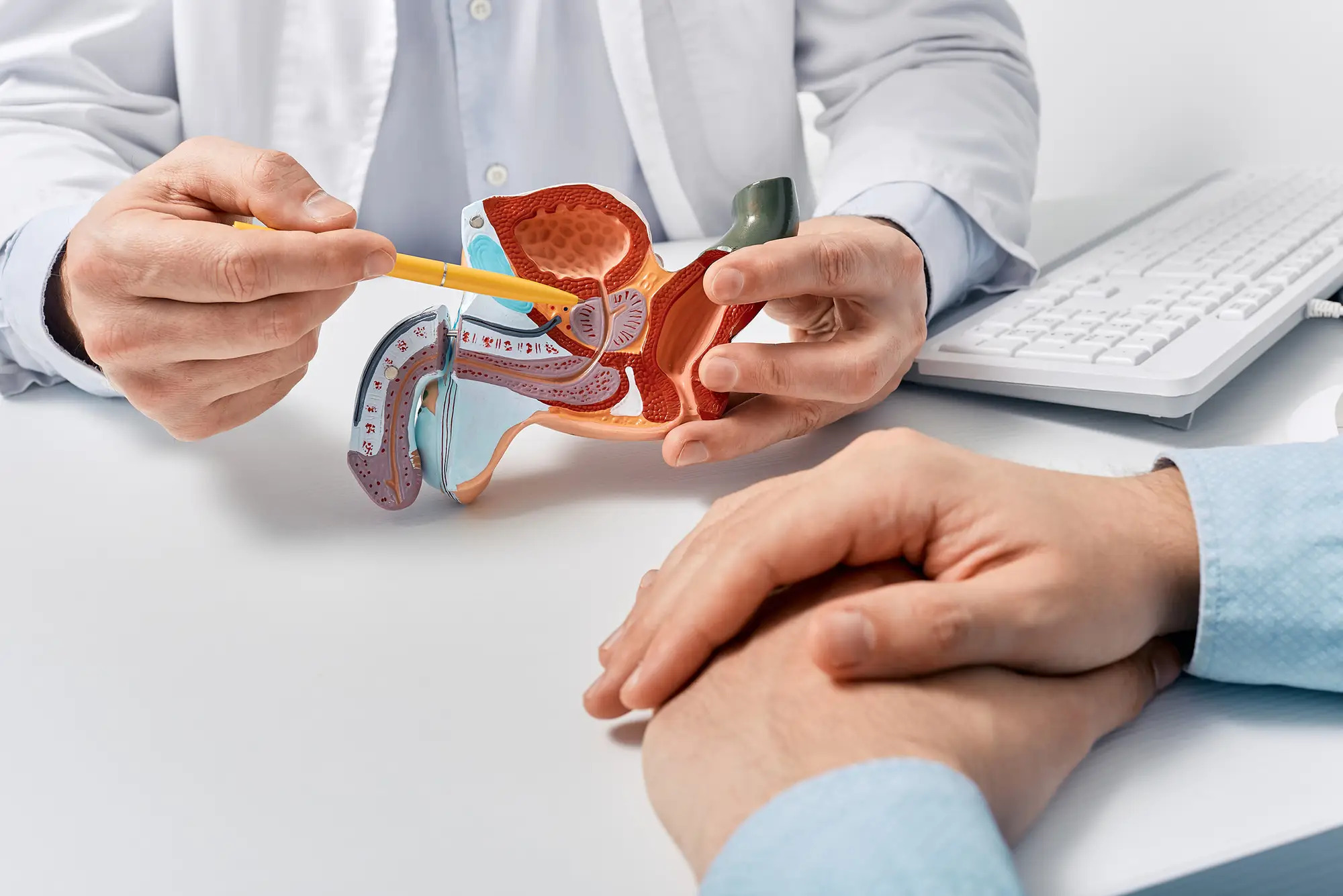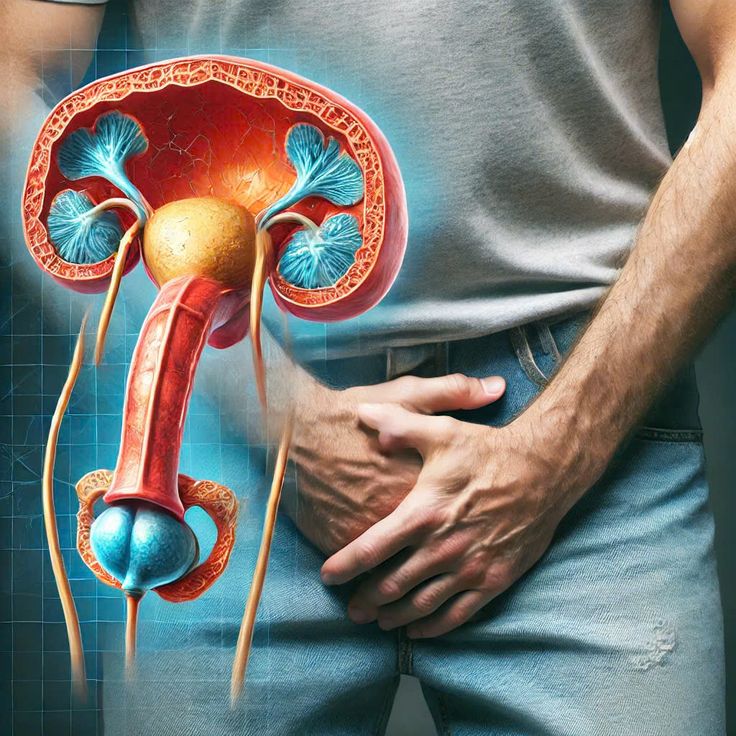I. Understanding Prostate Cancer Screening
Prostate cancer screening aims to detect prostate cancer early when treatments are most effective. The decision to undergo screening involves considering various factors and is best made in consultation with a healthcare professional who understands your health history, risk factors, and personal preferences. This collaborative approach is often referred to as "shared decision-making."

1. The Importance of Early Detection
Early detection of prostate cancer through screening allows for timely intervention, significantly improving treatment outcomes. Identifying the cancer at an early stage, when it has not spread, increases the likelihood of successful treatment.
Regular prostate cancer screening, along with routine check-ups, aids in early detection and prevents disease progression.
2. Key Risk Factors
Several factors influence the likelihood of developing prostate cancer, including:
- Age (risk increases after age 50)
- Family history (having close relatives with prostate cancer increases risk)
- Ethnicity (African American men have a higher risk)
- Lifestyle factors such as diet, obesity, and smoking,...
II. PSA (Prostate-Specific Antigen) Test Essentials
A protein made by the prostate gland and found in the blood. PSA blood levels may be higher than normal in men who have prostate cancer, benign prostatic hyperplasia (BPH), or infection or inflammation of the prostate gland. Also called prostate-specific antigen.
1. How the PSA Test Works
PSA is naturally produced by the prostate gland, and small amounts are present in the bloodstream. Elevated PSA levels may indicate prostate cancer but can also result from:
- Benign prostatic hyperplasia (BPH) – an enlarged prostate
- Prostate infections
- Recent ejaculation (temporarily raises PSA levels)
- Certain medical procedures or medications
2. Pros and Cons of PSA Testing
Pros:
- Can detect early changes in the prostate, potentially leading to early cancer diagnosis.
- Early treatment is often more effective, improving survival rates.
Cons:
- False positives – Elevated PSA levels may not always indicate cancer, leading to unnecessary anxiety and further testing.
- Overdiagnosis and overtreatment – Detecting slow-growing cancers that may never cause harm but could lead to unnecessary treatments and side effects.
3. Interpreting PSA Levels
An elevated PSA level does not necessarily indicate cancer. PSA levels may fluctuate due to various non-cancerous conditions, including infections and medical treatments. Healthcare providers will consider these factors when interpreting PSA test results.

III. Digital Rectal Exam (DRE) Overview
A digital rectal exam (DRE) is another screening method for prostate cancer. During a DRE, a healthcare provider inserts a gloved, lubricated finger into the rectum to feel for any abnormalities, such as lumps or changes in the prostate’s size or shape.
1. What to Expect During a DRE
The patient may be asked to:
- Stand and lean over an examination table
- Lie on their side in a fetal position
The provider will gently examine the prostate gland for any irregularities. The procedure is quick, usually lasting only a few minutes, and while it may cause mild discomfort, it is generally not painful.
2. Diagnostic Benefits vs. Potential Discomfort
Benefits:
- Allows direct physical examination of the prostate.
- Helps detect lumps, hardening, or irregularities that may indicate cancer.
Concerns:
- Some patients feel anxious or uncomfortable about the procedure.
- Understanding its importance and discussing concerns with a doctor can help alleviate anxiety.
IV. Making an Informed Decision
Given the complexities, benefits, and risks of prostate cancer screening, making an informed decision is crucial.
1. Doctor-Patient Communication
Patients should discuss the following with their healthcare provider:
- The benefits and risks of screening
- Accuracy and limitations of tests
- What to expect if results are abnormal
- Personal risk factors such as age, family history, and ethnicity
This conversation helps determine the most appropriate screening approach.
2. Weighing Your Options
Deciding whether to undergo screening should be based on multiple factors and is best done in consultation with a healthcare professional who understands your medical history, risk factors, and personal preferences.
3. Ongoing Monitoring and Follow-Up
The frequency of prostate cancer screenings should be determined based on individual risk factors. If results are abnormal, additional tests such as a prostate biopsy may be required to confirm the diagnosis.
V. Comprehensive Men's Health Services at Men's Health Center
At the Men's Health Center (Trung tâm Sức khỏe Nam giới Men’s Health), we offer Prostate Cancer Screening Packages, including PSA tests and DRE, as part of our comprehensive men's healthcare services. Our team of expert urologists and healthcare professionals specializes in diagnosing and treating various male health conditions.
Why Choose a Men's Health Center?
- Advanced diagnostic tools for accurate detection of prostate and other male health conditions.
- Experienced specialists dedicated to men's health and wellness.
- Personalized treatment plans tailored to individual health needs.
Additional Services for Men's Health:
- Prostate health check-ups
- Male fertility and reproductive health evaluations
- Testosterone level assessments
- Sexual health consultations
Schedule Your Prostate Screening Today!
Early detection is key to effective treatment. Contact Men’s Health Center today to schedule your prostate cancer screening and take proactive steps toward your health and well-being.
Contact Information
Men's Health Center (Trung tâm Sức khỏe Nam giới Men’s Health)
Address:
- Men’s Health District 10: 7B/31 Thanh Thai Street, Ward 14, District 10, Ho Chi Minh City.
- Men’s Health District 7 - Phuong Nam Hospital (7th Floor): 02 Nguyen Luong Bang Street, Tan Phu Ward, District 7, Ho Chi Minh City.
Phone: 0902.353.353 - 0911.161.161
Website: www.menhealth.vn - www.trungtamnamkhoa.com
 0902 353 353
0902 353 353 Giờ làm việc: 08:00 - 20:00
Giờ làm việc: 08:00 - 20:00 Địa chỉ: 7B/31 Thành Thái, P14, Q.10, TPHCM
Địa chỉ: 7B/31 Thành Thái, P14, Q.10, TPHCM
